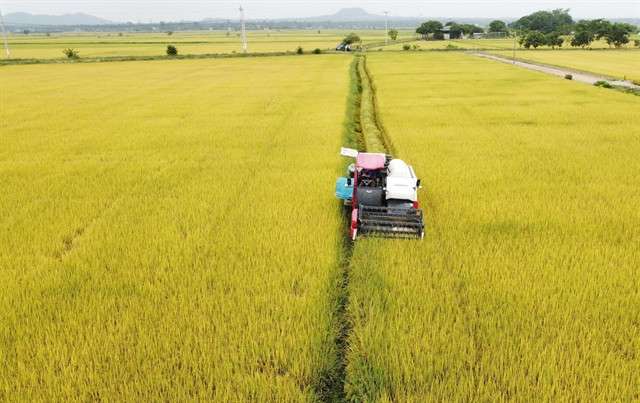In a groundbreaking economic study, researchers reveal that a shift toward a more sustainable global food system could yield astonishing benefits, potentially reaching up to $10 trillion annually. This comprehensive analysis, the most extensive of its kind, underscores the imperative need for an overhaul in our approach to food production and consumption. Not only could this transformation enhance human health, but it also stands as a vital strategy to mitigate the climate crisis.
Unraveling Hidden Costs: A Borrowed Future

The study exposes the existing food systems’ inherent flaw—destroying more value than they create due to hidden environmental and medical costs. Essentially, the current practices borrow from the future to reap profits today. With food systems responsible for a third of global greenhouse gas emissions, the world is hurtling toward a 2.7°C temperature increase by the century’s end, setting off a perilous cycle of extreme weather events and crop damage.
This dangerous trajectory extends beyond climate concerns, impacting global health and nutrition. The study predicts that a business-as-usual approach would leave 640 million people underweight by 2050, while obesity would increase by a staggering 70%. Thus, the hidden costs of the current food systems extend beyond immediate economic implications, delving into the realms of public health and exacerbating existing challenges.
Health, Climate, and Economic Benefits
Redirecting the trajectory of our food systems requires a multifaceted approach, politically challenging yet promising unprecedented economic and welfare advantages. The proposal advocates shifting subsidies away from large-scale monocultures to support smallholders who can transform farms into carbon sinks. Furthermore, altering dietary habits and investing in technologies to enhance efficiency and reduce emissions are crucial components.

The potential economic and welfare benefits extend far beyond monetary gains. With less food insecurity, the report asserts that undernutrition could be eradicated by 2050, preventing 174 million premature deaths. Additionally, 400 million farmworkers could earn sufficient incomes, thereby transforming the socio-economic landscape. The proposed transition not only limits global heating to 1.5°C but also halves nitrogen run-offs from agriculture, presenting a holistic blueprint for a sustainable and resilient future.
Overcoming Challenges: A Political Tightrope Walk
While the proposed changes promise immense benefits, the potential rise in food costs poses a significant challenge. Handling this aspect with political acumen and ensuring support for vulnerable sections of society becomes paramount to prevent social unrest, as witnessed in protests like the gilets jaunes in France over petrol price hikes. The study, aiming to be the food equivalent of the Stern review on climate change costs, underscores the urgency for radical changes in our food systems.
Addressing the potential economic impact of these changes, the researchers estimate the costs of the transformation at between 0.2% and 0.4% of global GDP per year. While this may seem significant, the long-term benefits and avoided costs associated with climate change, public health crises, and social inequality make this a prudent investment in the planet’s future. Thus, the economic implications of transitioning to sustainable food systems are not isolated but intertwined with broader considerations of societal well-being.
A Hopeful Future: Turning Food Systems into Carbon Sinks
Johan Rockström, one of the study’s authors, emphasizes that the global food system holds the future of humanity on Earth in its hand. The proposed transition, if implemented, could eradicate undernutrition by 2050, prevent 174 million premature deaths, and empower 400 million farmworkers to earn sufficient incomes. It not only limits global heating to 1.5°C but also halves nitrogen run-offs from agriculture, presenting a hopeful blueprint for a sustainable and resilient future.
This optimistic outlook emphasizes the transformative power of embracing sustainable practices in the food sector. The benefits extend not only to the environment and economic prosperity but also to fundamental aspects of human existence, ensuring a healthier, more equitable world. As policymakers and stakeholders grapple with the complexities of transitioning to sustainable food systems, the study provides a roadmap, illustrating the potential for positive change and laying the groundwork for a future where food becomes a driving force for global well-being.
Embracing Change: A Paradigm Shift
Nicholas Stern, chair of the Grantham Research Institute on Climate Change and the Environment, welcomes the study as an acknowledgment that the economics of today’s food system are broken beyond repair. Calling for radical change, Stern emphasizes that transforming the ways we produce and consume food is critical for addressing climate change, protecting biodiversity, and building a better future. The study’s forward-looking nature captures the attention of policymakers aiming to secure a healthier future for the planet and its inhabitants.
As the call for change reverberates, the study challenges conventional notions of economic prosperity, urging a paradigm shift in how we perceive the value of food systems. Beyond the immediate monetary gains, the proposed transformation represents an investment in the long-term resilience of the planet and its inhabitants. Embracing change is not merely an economic necessity; it is a moral imperative to forge a sustainable path forward. The study, echoing the urgency expressed by global environmental leaders, underscores that the time for radical, transformative action is now.
A Conclusive Call to Action: Forging a Resilient Future
In conclusion, the study serves as a clarion call for decisive action and systemic change in global food systems. The imperative to transition toward sustainability is not just an economic opportunity but a moral obligation. As the world grapples with interconnected challenges such as climate change, public health crises, and social inequalities, the proposed shift in food systems emerges as a beacon of hope.
The economic, health, and environmental benefits outlined in the study underscore the potential for a resilient and equitable future. Policymakers, industry leaders, and citizens alike are urged to embrace this paradigm shift, recognizing that the cost of inaction far outweighs the challenges of transformation. The study stands as a testament to the transformative power of sustainable practices, illustrating that a future where food systems contribute to global well-being is not just desirable but within reach. The time to act is now, and the path forward lies in forging a resilient future through sustainable food systems.
Related Content:
- Unveiling Forest Vulnerability: Surprising Revelations in Tree Sensitivity to Drought Climate Uncertainty Unveiling Forest Vulnerability: Surprising Revelations in Tree Sensitivity to Drought – Micro2media
- Revolutionizing Work: The Impact of AI Assistants on Productivity, Learning, and Job Satisfaction – Micro2media
- Switching to Sustainable Food System Could Create Up to $10 Trillion in Benefits a Year
- Move to sustainable food systems could bring $10tn benefits a year, study finds | Food | The Guardian
